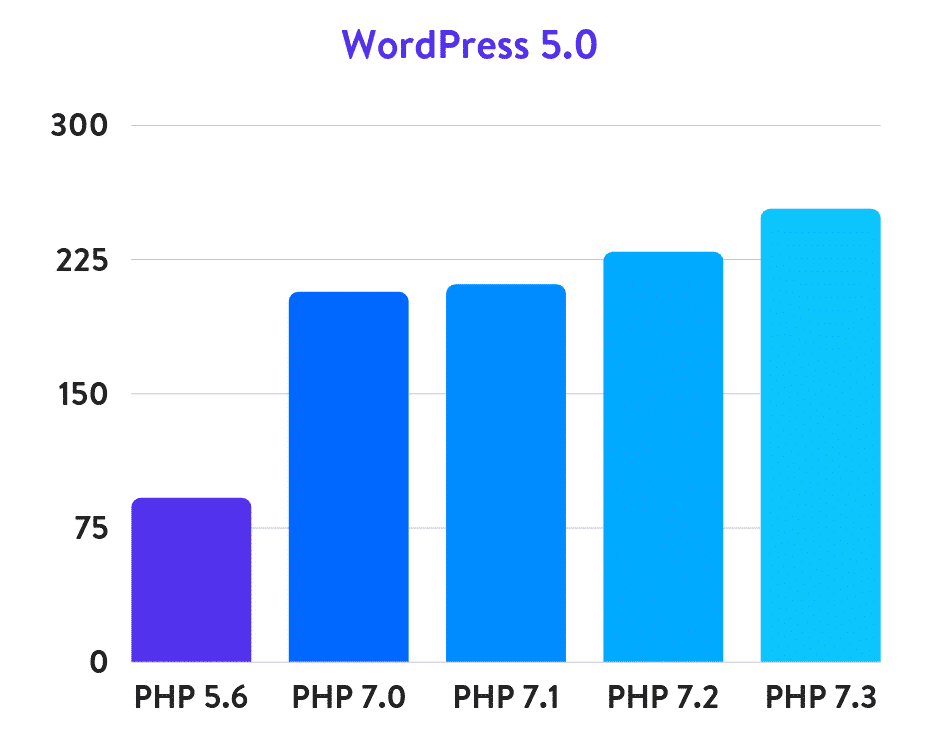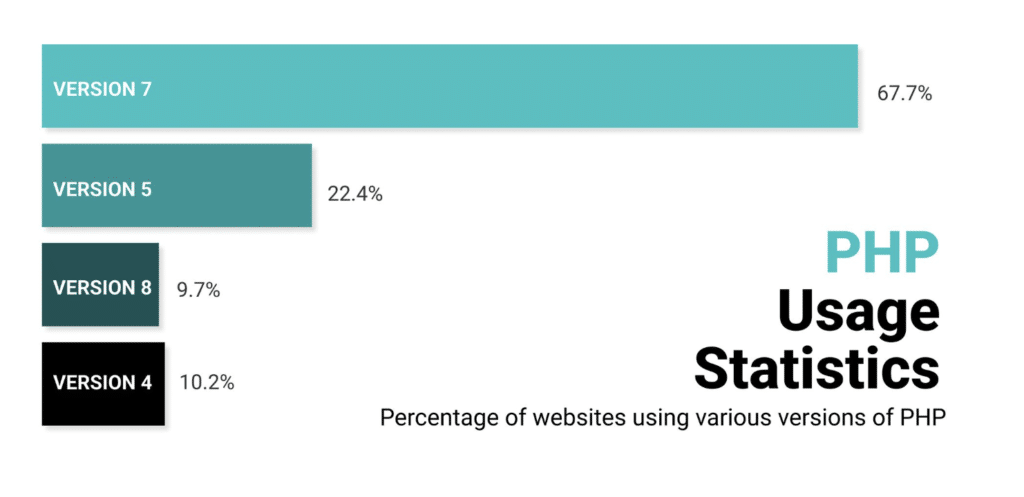1. PHP’s Continued Popularity
- Widespread Use: As of March 2024, PHP powers 76.4% of websites, with older versions like PHP 7.4 still being widely used. While its market share has slightly declined, PHP continues to be a dominant force in web development.
- WordPress Dependency: A huge reason for PHP’s continued use is its reliance by WordPress, which runs 43.2% of the web. With millions of sites using WordPress for content management and eCommerce, PHP’s presence in web development remains strong.

2. Why PHP is Still Relevant
- Reliable Performance: PHP has earned its place as a stable and reliable language for web development. It’s a go-to choice for many developers who need a dependable platform to build dynamic websites and applications.
- Versatility: PHP is highly adaptable, working seamlessly with popular databases like MySQL, MongoDB, and Oracle. This makes it an excellent choice for developers who need flexibility across different back-end systems.
- Wide Plugin Compatibility: PHP’s rich ecosystem of plugins allows developers to easily add features like payment systems, booking tools, and content management without having to reinvent the wheel. This saves time and resources for developers.

3. PHP’s Improvements Over Time
- PHP 7.4 Enhancements: PHP 7.4 introduced significant upgrades, including typed properties, better memory usage, and improved garbage collection. These changes make PHP faster, more efficient, and user-friendly for developers.
- Developer-Friendly Features: PHP’s recent updates have added features like nullable data types and multi-catch exception handling, which make coding in PHP easier and reduce the likelihood of errors. These enhancements improve developer productivity and code quality.
4. Why Some Developers Criticize PHP
- Performance Issues: One of the main criticisms of PHP is that it’s slower compared to some newer languages. It also requires restarting the entire web application when it starts up, which can create overhead in larger systems.
- Non-Intuitive Syntax: Many developers find PHP’s function names and syntax hard to understand, especially when compared to other languages with more intuitive structures. PHP also requires constant referencing of documentation, which can slow down development.
- Security Concerns: While newer versions of PHP have improved security, the language has historically been prone to vulnerabilities. This has led some to turn to newer, more secure languages like Java or .NET Core, which have built-in security features.

5. PHP vs. Modern Alternatives
- Competition from Node.js: Node.js, which runs JavaScript on the server, is gaining popularity for backend development. Its event-driven, non-blocking model allows for handling multiple requests simultaneously, offering better performance than PHP in certain use cases.
- Flexibility of Newer Languages: Languages like Java, .NET Core, and Node.js offer enhanced performance, security, and flexibility, making them appealing for enterprise-level applications that need to scale or handle complex requirements.
Review:
PHP may face some challenges from newer technologies, but it remains a major player in web development due to its widespread usage, constant updates, and strong community support. While alternatives like Node.js and Java are growing in popularity, PHP’s extensive ecosystem, ease of use, and reliability ensure it will continue to be a key language for building websites and applications. However, for more complex or high-performance systems, developers may want to explore newer technologies.
Coding Filters Enhance Collaboration in Development Teams!
In team-based development environments, coding filters help enhance collaboration by making code more modular and easier to understand. By using filters, developers can work on different parts of an application without interfering with one another, streamlining the development process and improving team productivity.




